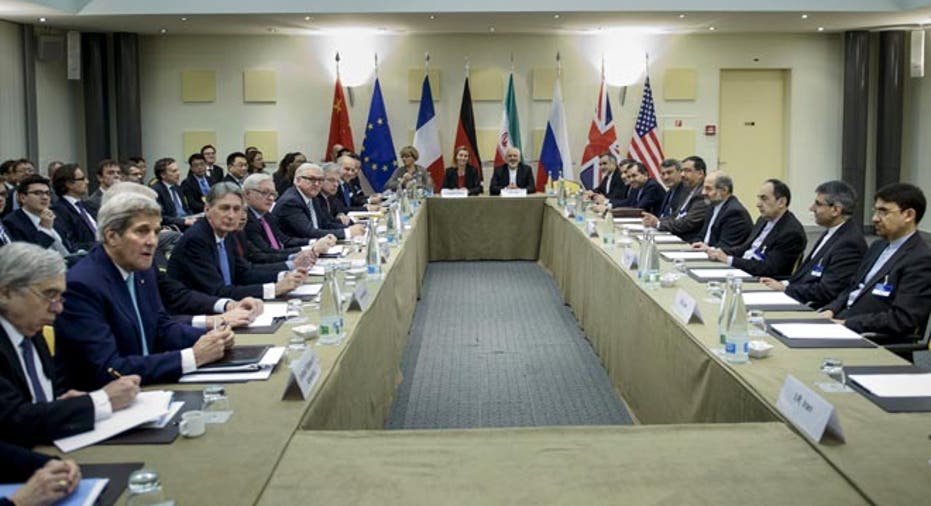U.N. Likely to Vote on Iran Nuclear Deal Next Week: Diplomats

The United States on Wednesday circulated a draft resolution to the U.N. Security Council that would endorse the Iran nuclear deal but retain an arms embargo and ban on ballistic missile technology, said diplomats ahead of a likely vote next week.
U.S. Ambassador to the United Nations Samantha Power briefed the 15-member council on the draft document behind closed doors.
The deal reached on Tuesday in Vienna with Iran was negotiated by Germany, the European Union and the five permanent, veto-wielding members of the Security Council - the United States, Russia, China, Britain and France.
In return for lifting sanctions, Iran agreed to long-term curbs on a nuclear program that the West suspected was aimed at creating an atomic bomb, but which Tehran says is peaceful.
The seven-page draft, seen by Reuters, states that the seven previous U.N. resolutions on Iran will be terminated when the International Atomic Energy Agency submits a report verifying Iran has implemented certain nuclear-related measures.
"Next week the U.N. Security Council will recognize the enrichment program of a developing country," Iranian Foreign Minister Javad Zarif was quoted as saying by the state news agency IRNA upon arrival at Tehran's airport.
"We hope that more or less within four months measures taken by both sides show results and implementation of the deal begins."
NUCLEAR, MISSILE TECHNOLOGY
Included in the draft U.N. resolution is a so-called stand-alone statement, which details an arms embargo, restrictions on the transfer of nuclear technologies and ballistic missile technology, and targeted sanctions.
The statement says that states can transfer this technology and heavy weapons, such as tanks, warships and attack helicopters, if approved by the Security Council on a case-by-case basis.
"That essentially though is meaningless because as a matter of policy the United States will veto any suggested transfer of missile technology to Iran," said a U.S. official with knowledge of the resolution.
The ban on ballistic missile technology will remain in place for eight years, an arms embargo for five years, and restrictions on nuclear technology for a decade.
The statement lists 36 individuals and entities who will no longer be subjected to an asset freeze and travel ban. There are currently 43 individuals and 78 entities on the U.N. blacklist. The targeted sanctions regime will be in place for eight years.
It also calls on countries to monitor the Iran deal by inspecting all cargo to and from Iran if they suspect it contains items that violate the nuclear deal.
SNAPBACK SANCTIONS
The draft resolution enshrines a mechanism for all current Security Council sanctions to be automatically reimposed if Iran breaches the deal, referred to by some diplomats as snapback.
According to the Vienna deal, the six world powers, Iran and the European Union will form a joint commission to handle any complaints about breaches. If the complaining state is not satisfied with how the commission addresses its concerns, it could then take its grievance to the U.N. Security Council.
The Security Council would then need to vote on a resolution to extend the sanctions relief for Iran.
If such a resolution has not been adopted within 30 days of the council receiving the complaint of a breach, then the sanctions contained in all previous U.N. resolutions would be reimposed, unless the council decided otherwise.
According to the draft U.N. resolution, if the previous sanctions are reimposed they would not apply retroactively to contracts Iran signed.
If the nuclear deal is adhered to, all the provisions and measures of the U.N. resolution would terminate 10 years after the Vienna agreement comes into effect and the Iran nuclear issue would be removed from the Security Council agenda.
The U.S. official said that the five permanent members of the U.N. Security Council have agreed to adopt a new resolution after 10 years that would extend for another five years the mechanism allowing sanctions to be reimposed.
(By Michelle Nichols; Editing by James Dalgleish and Lisa Shumaker)



















